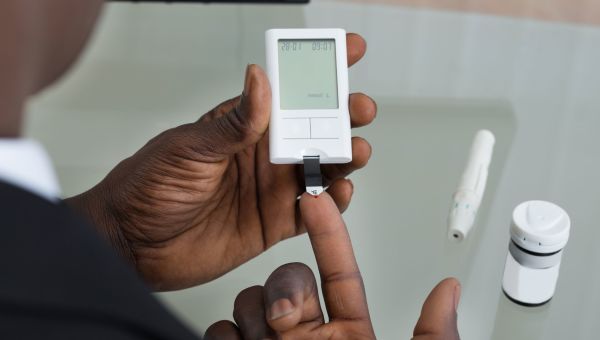7 things your surgeon wants you to know about weight loss surgery
You still need to eat well and exercise.
Updated on August 6, 2024

Weight-loss surgery, also called bariatric surgery, is an effective way that can help people with severe obesity shed extra pounds and keep them off, according to the National Institutes of Health. In 2022, almost 280,000 of these procedures were performed in the United States.
There is a lot to consider before deciding if surgery is right for you. Read on for insights from Lloyd Stegemann, MD, a bariatric surgeon with the Better Weigh Center in Corpus Christi, Texas, on the possible benefits and risks of weight-loss surgery.

There’s more than one type of surgery
There are four main types of weight-loss surgery:
- Adjustable gastric band (AGB) surgery involves an inflatable band placed around the upper portion of the stomach, making a small pouch. This creates the sensation of a smaller stomach, which helps you feel fuller after eating. As a result, you tend to eat less food, leading to weight loss. It's reversible, adjustable, and doesn’t require the stomach to be cut.
- Sleeve gastrectomy removes about 80 percent of the stomach, leaving a small, banana-shaped section behind. It reduces the amount of food the stomach can hold. Research suggests it also alters hormones responsible for signaling hunger and fullness. Data collected three to five years after surgery shows people who have the surgery can lose more than 50 percent of excess weight from this procedure.
- Gastric bypass (Roux-en-Y gastric bypass, or RYGB) works by creating a smaller stomach pouch. The smaller stomach decreases the amount of food a person can eat and reduces how many calories the body can absorb. This procedure results in more than 70 percent loss of excess weight but may lead to nutrient deficiencies over time.
- Biliopancreatic diversion with duodenal switch (BPD/DS) combines sleeve gastrectomy with bypass surgery. It creates a small banana-shaped stomach that connects to the last part of the small intestine, bypassing a majority of the small intestine. This reduces the amount of food a person can eat, limits the body’s ability to absorb calories, and affects hormone levels that control hunger and satiety (the feeling of fullness after eating). This is considered the most effective form of weight-loss surgery, but requires a longer hospital stay and has the highest risk of nutrient deficiencies and complications.
Most major insurance companies and Medicare cover bariatric surgery, but they may not cover all types of these procedures. For insurance to cover, you will need to meet certain requirements. These can vary depending on your coverage. Check with your insurance company about their requirements for coverage, and which procedures they cover.

Surgery isn’t for everyone
Surgery isn’t for everyone
Not everyone is eligible for bariatric surgery. Body mass index (BMI) estimates body fat based on weight and height. It is used to estimate if someone has a healthy weight for their height. Those who may qualify for bariatric surgery have:
- A BMI of 30-34.9 and metabolic disease. This is related to obesity and can lead to diabetes.
- A BMI of 35 or greater, regardless of the presence of health conditions related to obesity
- Asian ethnicity with a BMI of 25–27.5 or higher. This is due to the tendency for body fat to be distributed differently in this population.
Your HCP will assess whether you are healthy enough to undergo surgery. And you must not have active substance abuse concerns, like drinking too much alcohol.
There are also mental health qualifications. HCPs evaluate for binge-eating disorder and anxiety, which can make weight maintenance more challenging. They may recommend waiting for surgery until these conditions are effectively treated and under control.
You must also have tried without success to maintain weight loss with diet and exercise, and remain willing to adopt healthy habits before and after surgery.
“They need to have a basic understanding of how the operation works, that they’ll be eating less, will still need to exercise, and that they’ll need to commit to the post-operative follow-up,” Stegemann says.
Your healthcare provider (HCP) will take your individual preferences into account when deciding if you are a candidate for weight loss surgery, and recommend which one would be best for you.

Weight loss can improve conditions related to obesity
Weight loss can improve conditions related to obesity
Almost 42 percent of people in the United States have obesity, which is linked to an increased risk of health conditions including:
- Type 2 diabetes
- High blood pressure
- Stroke
- Heart disease
- Sleep apnea
- Certain types of cancer
- Depression
- Joint pain
- Infertility
“We know that weight can cause significant health problems for individuals,” says Stegemann. “By improving somebody’s weight, we dramatically improve their health and quality of life.”
Adults with obesity are at high risk for cardiovascular disease, and research suggests weight-loss surgery may lower this risk. A 2022 study analyzed the results of 39 other studies. Researchers found that bariatric surgery was linked to lower risk of cardiovascular disease, as well as death from all causes. The analysis was published in the European Heart Journal.
While more research needs to be done to know the reasons why, it’s possible that it’s not just the weight loss that improves cardiovascular health. The surgery may actually be changing gut hormones, sensitivity to the hormone insulin that helps regulate blood sugar levels, and even the microbiome (these are beneficial bacteria that live in the gut). For this reason, bariatric surgery is sometimes called “metabolic surgery.”

It takes preparation
Preparation for weight-loss surgery is mental and physical. Your bariatric team will help guide you along the way.
It’s common for bariatric surgeons to set weight-loss and fitness goals for people who are preparing for these procedures. These include making lifestyle adjustments like a healthy diet and regular exercise.
Work with your healthcare team to address any mental health concerns you may have, too. Even with surgery, weight loss takes effort. Caring for your mental health can help your recovery and long-term health.

Hospital stays and recovery varies
Depending on your hospital, HCP, and type of procedure, your surgery experience will vary. But there are a few things you can expect the day of:
- Surgery will be performed in a hospital.
- You will receive general anesthesia. This causes a sleep-like state in which you won’t feel pain.
- Most surgeries are performed laparoscopically, using small incisions.
- The procedure typically takes between one and two hours.
Your hospital stay depends on your procedure and how quickly your body recovers. Generally, it lasts one to two days, but can be as long as a week. “Two weeks after surgery you're pretty much back to your normal routine, and by six weeks, you are completely healed,” says Stegemann.

There’s a risk of complications
Bariatric surgery is relatively safe, but no surgical procedure is risk-free. In fact, nearly 17 percent of all bariatric surgeries are a repeat surgery.
Your risk of having a complication is related to your overall health before surgery. This is something you’ll discuss with your bariatric team. As with almost any surgery, there is a risk of bleeding, infection, and blood clots. Many weight-loss procedures also alter the way your body absorbs nutrients, making it possible to develop deficiencies. These can lead to anemia (not enough red blood cells) and osteoporosis (weakened bones).
These operations also raise your risk of hernias and strictures, narrowing of the stomach or narrowing of the connection between the stomach and small intestine. This makes eating solid foods a challenge and can lead to nausea, vomiting, or trouble swallowing. Ulcers and low blood sugar are other possible complications.
Make sure to ask your HCP about your individual situation and the potential risks and benefits of surgery.

Your journey doesn't stop after surgery
Your journey doesn't stop after surgery
The amount of weight you should expect to lose after surgery is determined by a number of factors, including:
- Type of surgery
- Starting weight
- Age
- Ability to exercise
- Willingness to adopt healthy habits
Surgery can help kick-start this weight loss. But to keep the weight off, a healthy lifestyle must be followed for life. This includes a healthy diet, regular exercise, adequate sleep, and stress management.
Consuming too many calories can limit the number of pounds you lose and may result in weight gain. Even a single meal that’s too large, or loaded with excess fat or sugar, can cause discomfort almost immediately, resulting in nausea, vomiting, and constipation.
Post-surgery diet recommendations vary, and you should follow your HCP’s recommendations. These might include:
- Eating and drinking more slowly
- Sipping liquids between meals, but not with meals
- Avoiding fatty and sugar-rich foods
- Chewing thoroughly
- Eating smaller meals
- Getting more protein in your diet
- Taking vitamin and mineral supplements as directed by your HCP
- Avoiding carbonated or high-calorie beverages
- Avoiding alcohol
To keep you on track, you’ll meet with your healthcare team to check on your progress. "We follow patients closely for the first year as they're really starting to work on all of these lifestyle changes," says Stegemann. "They'll meet with a dietitian, behavioral health specialists, and exercise physiologists or trainers to really start working on all of those areas."
If you take prescription or over-the-counter medications, your body could process these drugs differently after weight-loss surgery. Some medications might need to be adjusted as you lose weight. Your HCP may decide to change your dosage or treatment plan. Larger pills, which could become stuck in your digestive tract, may need to be crushed or replaced with another form of the medication, such as a liquid or chewable tablet.
Make sure to go to your appointments. Stegemann advises people who’ve had bariatric surgery should follow up with their medical team for years following their procedure to help ensure they maintain a healthy weight long-term.

Medicare.gov. Bariatric surgery. Accessed July 26, 2024.
DukeHealth. Is Weight Loss Surgery Covered by Insurance? Last updated October 11, 2023.
National Institutes of Health. Definition & Facts of Weight-loss Surgery. Page last reviewed September 2020.
American Society for Metabolic and Bariatric Surgery. Estimate of Bariatric Surgery Numbers, 2011-2022. Page accessed February 23, 2024.
Eisenberg D, Shikora SA, Aarts E, et al. 2022 American Society of Metabolic and Bariatric Surgery (ASMBS) and International Federation for the Surgery of Obesity and Metabolic Disorders (IFSO) Indications for Metabolic and Bariatric Surgery. Obes Surg. 2023 Jan;33(1):3-14.
American Society for Metabolic and Bariatric Surgery. Life After Bariatric Surgery. Page accessed February 23, 2024.
American Society for Metabolic and Bariatric Surgery. Bariatric Surgery Procedures. Page accessed February 23, 2024.
Mayo Clinic. Gastric bypass (Roux-en-Y). June 25, 2022.
Centers for Disease Control and Prevention. Adult Obesity Facts. Page last reviewed May 17, 2022.
van Veldhuisen SL, Gorter TM, van Woerden G, et al. Bariatric surgery and cardiovascular disease: a systematic review and meta-analysis. Eur Heart J. 2022 May 21;43(20):1955-1969.
Mayo Clinic. Bariatric Surgery. October 18, 2023.
Briggs E, Kumar S, Palazzo F, et al. Revisional bariatric surgery for weight recurrence or surgical nonresponse. Annals of Laparoscopic and Endoscopic Surgery. 2023 Jul;8.
More On


video

article

slideshow


video


video
